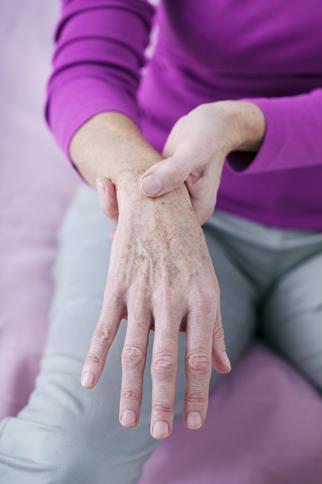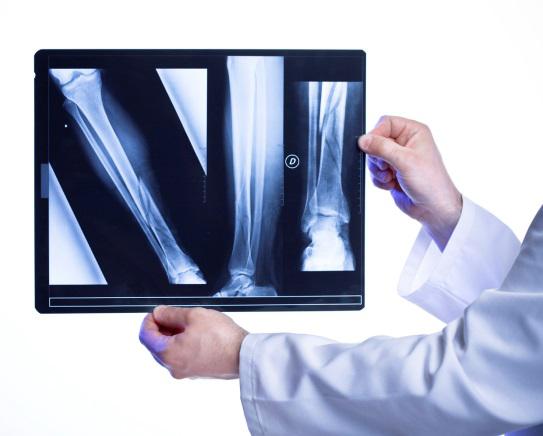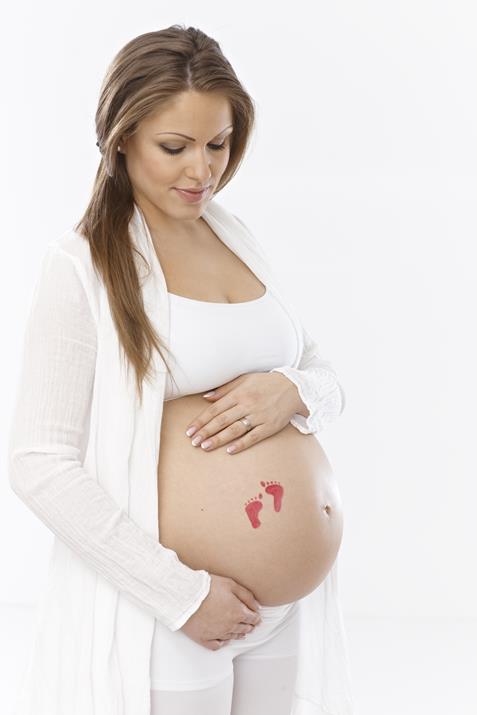Stem Cell Blog
Употребата на матичните клетки од папочна врвца рапидно се зголемува. Пред 10 години крвта од папочна врвца можеше да лекува околу 40 состојби, но денес таа бројка е над 80. Со нетрпение очекуваме нови терапии за болести и нарушувања како што се дијабет, аутизам и мозочен удар, можете да бидете во тек со најновите случувања во регенеративната медицина на нашиот блог за матични клетки.
In the final week of our “Race Matters” mini-series, Cells4Life are raising awareness of Fanconi Anaemia.
Fanconi Anaemia was discovered by a Swiss paediatrician in 1927 named Guido Fanconi. Fanconi Anaemia is a genetic disorder with a higher prevalence in Afrikaners in South Africa and Ashkenazi Jews, FA affects approximately 1 in 350,000 births. The genetic nature of FA means that for those parents who aware that they could have a baby with this illness that they can plan ahead and bank their baby’s cord blood for a perfect match should they need a stem cell transplant in the future.
Fanconi Anaemia is incredibly rare and diagnosis can be timely [1] however, those with FA usually have a congenital anomaly [2].
As we progress through the week we will look at what Fanconi Anaemia is, what the symptoms are and what the risk factors are.
Over the last 4 weeks we have introduced you to the situation that many people face when they need to turn to the stem cell register for a match and we’ve looked at some of the illnesses which may have caused them to need a stem cell transplant. We’ve looked at the opportunity parents have to secure their child a perfect stem cell match by banking their baby’s umbilical cord blood and how people of all ethnicities can help by joining the bone marrow register.
For Dementia Awareness Week, we’ll be raising awareness of the illness, considered a ticking time-bomb by many.
Dementia is an illness unique to humans which may explain why an effective treatment for it has been elusive. However, developments in stem cell research are giving hope to the millions of people who suffer from dementia and their families.
Dementia is an umbrella term which is used to describe a range of symptoms and brain disorders which cause a loss of brain function. The conditions which cause dementia are often severe and progressive.[1] There are many different types of dementia but the most common is Alzheimer’s which affects 62% of those diagnosed.[2]
The UK has an ageing population; with the prevalence of Dementia increasing, the race is on to find an effective treatment. Scientists have tried many options over the years but stem cell research is now offering a ray of hope with 23 clinical trials already taking place to investigate their potential in the treatment of this devastating disease.[3]
The symptoms of dementia are truly terrible; they include memory loss, confusion, problems with understanding and speech. Unfortunately dementia is a terminal condition.[4] The UK currently has over 800,000 people with dementia; this number is set to more than double by 2050 with 1.7 million people to be expected to be suffering with the condition. Currently 80% of people in care homes have some form of dementia or severe memory loss.[5] With the shocking statistic that 1 in 3 people over the age of 65 expected to die with dementia, Cells4Life will be backing the #1in3 campaign throughout Dementia Awareness Week.
For many expectant parents, they find it incredibly difficult to imagine their precious baby being ill and rightly so. However, as we age and grow old, illnesses become increasingly more inevitable. That’s why at Cells4Life we want to encourage people to think about the life-long benefits which cord blood banking could hold for their families. As cord blood storage is widely accepted in the scientific community as being indefinite, it is reasonable to assume the cord blood of a baby born today could be viable for treatment in their retirement years. Imagine the progress and possibilities that stem cells could unlock in a lifetime.
If you think someone you know is suffering from dementia, encourage them to speak to their GP.
[1] [2] [4] [5] https://www.alzheimers.org.uk/info/20007/types_of_dementia/2/alzheimers_disease
[3] https://clinicaltrials.gov/ct2/results?term=stem+cells+dementia&Search=Search
What is Osteoarthritis and how stem cells are being used to combat this painful illness?
Osteoarthritis is a painful, progressive illness which affects the joints; it is caused by the degeneration of cartilage. Cartilage is a tissue which covers the ends of joints to allow the bones to glide easily and prevent them from grinding together.
It is difficult to state the exact number of people suffering from osteoarthritis, milder symptomatic sufferers do not tend to seek medical attention or rely on over the counter treatments to soothe their pain. It is estimated that over 8 million people in the UK suffer from osteoarthritis, with women over the age of 50 most likely to suffer from osteoarthritis. Accidental damage is the most common cause of osteoarthritis in those under 35 years of age.[1]
The NHS Executive has calculated the annual cost of Osteoarthritis at £320 million.[2]
Over the course of the week we will be asking “What is Osteoarthritis?” and “What are the risk factors of Osteoarthritis?” We will hear about the experiences of those living with osteoarthritis and we will take a look at how stem cell research, tissue engineering and bio-printing are being used to help find a cure.
June is National Osteoporosis Month. Cells4Life will be supporting the cause by raising awareness across all of our social media channels.
Last week we were raising awareness of osteoarthritis, a condition often confused with osteoporosis, this may be due to the fact that patients often suffer from both illnesses. While osteoarthritis is a degenerative condition affecting the joints, osteoporosis is a degenerative condition affecting bone density.
Osteoporosis is more likely to affect Caucasian, post-menopausal women, however diagnosis is not exclusive to this demographic.[1] Unlike OA, osteoporosis is a painless condition.[2] However, many people with osteoporosis are not diagnosed until they suffer a fracture.[3] Due to the bones becoming more brittle as they lose their mass, fractures are a common problem for those who suffer from osteoporosis.
Hip fractures result in the loss of 1,150 lives every single month in the UK and the costs associated with the health and social care of patients with osteoporosis are costing the UK approximately £6 million every day.[4]
Throughout the week we will be looking at the risk factors of osteoporosis and what the symptoms are. We will look at the real-life stories of those affected by osteoporosis before taking a look at the amazing stem cell research currently being undertaken by scientists around the world.
[3] http://www.nhs.uk/Conditions/Osteoporosis/Pages/Symptoms.aspx
[4] http://www.nos.org.uk/page.aspx?pid=328&DeliveryChannelID=23b56292-0f3c-43ac-af13-&srcid=349
August is Psoriasis Awareness Month. We’re joining in by raising awareness of this often painful skin condition and the role stem cells could play.
Psoriasis is a condition of the skin which causes patches of skin to become covered in silvery scales which are red and flaky. These patches of skin can become itchy and sore.
Psoriasis usually only affects small areas of skin, usually the lower back, scalp, knees or elbows but in some cases it can appear anywhere on the body.
While psoriasis can occur at any age, it is most common in adults under the age of 35 and is equally prevalent in both men and women, affecting approximately 2% of the British population.[1]
Psoriasis is a chronic condition with a cyclical nature where that patient will suffer only very mild symptoms or even no symptoms at all followed by periods where the symptoms are more severe. The severity of psoriasis is unique to each patient. For some patients psoriasis is a minor irritation while for others, their quality of life can be greatly affected by the condition.[1]
There are a variety of risk factors and causes of psoriasis such as family history, weight, smoking and even stress. This list is by no means exhaustive but gives an indication to the everyday issues which could trigger a flare up of psoriasis in sufferers.
Treatment of psoriasis can vary from person to person, unfortunately there is no cure but effective treatments (usually used in a combination) include :
Stem cell transplants have been observed to have a positive effect on psoriasis, however, this is usually a side effect of another treatment for example; a patient with both psoriasis and cancer has a stem cell transplant for treatment of their cancer but finds that their psoriasis has also improved or remitted. There have been some very small but promising studies with stem cells and psoriasis but it is important to stress that these studies are very preliminary.
[1] http://www.nhs.uk/Conditions/Psoriasis/Pages/Introduction.aspx
[2] http://www.nhs.uk/Conditions/Psoriasis/Pages/Treatment.asp
This week we are concluding our pregnancy mini-series with a look at the third trimester.
The third trimester is the final stage of pregnancy. During this time your baby will continue to grow and his or her lungs will begin to mature ready for life in the outside world. As you baby continues to grow they will gain weight, as much as a pound a week during the final weeks.
All this growth will mean you may need to rest more often. You will begin to feel increasingly tired and may even feel breathless as your baby takes up more and more room. Heartburn is a common complaint for many women during this time. A glass of milk can help to soothe the burning but if that fails your doctor or midwife will be able to recommend something suitable to offer you some relief.
Breathlessness and heartburn should begin to subside once your baby “drops” into your pelvis, an exciting sign that your baby is preparing to be born. As your due date comes closer you will probably want to have your hospital bag packed, ready to go. Remember to pack your cord blood collection kit as the phlebotomist will need this to procure your baby’s cord blood sample.
Once your baby and placenta has arrived, you can enjoy those first precious moments with your new arrival. The placenta will then be taken away so that your baby’s umbilical cord blood and cord tissue can be procured. It is completely painless and safe, without any medical risk to you or your baby. Once the cord blood has been procured and the courier has been to collect the sample it will be processed in our 24 hour laboratory. This quick processing time ensures that the best quality cord blood sample possible is stored your baby and family.
Cells4Life, the private umbilical cord blood storage company based in Brighton, Sussex, has today announced the launch of its umbilical cord blood collection training course, available for healthcare professionals.
The course has been developed in conjunction with the National Association of Phlebotomists and will be running throughout the year at various locations within the UK.
The course has been designed specifically to train healthcare professionals in the collection of umbilical cord blood using the Cells4Life collection protocol.
Cells4Life was the first company to offer a private phlebotomy service and has always maintained that cord blood collection should only be performed by a trained professional. The Cells4Life collection process was developed in conjunction with RCOG guidelines and leading consultant obstetrician and gynaecologists. It recommends that the cord blood is collected after the 3rd stage of labour, following the cord being clamped and the placenta being delivered.
“At Cells4Life we feel that collecting the blood at this stage interferes less with the birthing process and this is a guideline adopted by the RCOG in their Position Paper 2. We are delighted by today’s announcement from the Human Tissue Authority that only trained professionals should perform this procedure – something we have always recommended. Cells4Life is once again setting the industry standards” said Rebecca Rutter, Operations Manager at Cells4Life.
MS is a condition which affects the central nervous system. Multiple Sclerosis is an autoimmune disease; an autoimmune disease is an illness in which the body attacks itself. In the case of MS the body attacks nerves and strips the nerves of their insulating coating, called Myelin. The attack on the nervous system can be so severe that even the nerves themselves become damaged
Multiple Sclerosis affects around 100,000 people in the UK. Like most autoimmune diseases, MS is more prevalent in women than men. Unfortunately there is no cure for MS today, but hopefully that could soon be a thing of the past
Stem cells are providing exciting opportunities for researchers to develop treatments for MS. Dr. Richard Burt has conducted a successful but small study. The results were so promising that this study was been developed into a randomised trial. As well as the research Dr. Burt is conducting, the MS Society and UK Stem Cell Foundation announced their collaboration on three studies back in 2011. The investment in these studies was over £1,000,000.
This week, to lend our support to National MS Week and raise awareness of MS, we will be using our social media outlets to highlight the role of stem cells in the quest for a cure for MS. We’ll cover clinical trials, a stem cell pioneer, the real life story of a clinical trial participant and much more.
This week is Down’s Syndrome Awareness Week and this week we’ll be highlighting how stem cells can be used to help people with Down’s.
There are around 40,000 people in the UK who have Down’s Syndrome and 1:1000 babies born in the UK will have Down’s, that’s around 8,000 a year[1].
Down’s Syndrome occurs at conception and is caused by an extra chromosome in the baby’s cells. Down’s is an irreversible condition, there is no cure. People with Down’s do not suffer from the condition and they are not ill, it is not a disease[2]. However, people with Down’s Syndrome are more likely to suffer from certain health problems because they have Down’s, problems which can be helped or even cured with stem cells.
One such problem is Congenital Heart Defect. A congenital heart defect means that it is a heart defect that you are born with. Around 50% of children with Down’s Syndrome will be born with a congenital heart defect, of those 60% will need hospital treatment[3].
Another health issue faced by those with Down’s is an increased likelihood of developing leukaemia, in fact children with Down’s are 10 to 20 times more likely to develop the illness than those without Down’s[4].
Both congenital heart defects and Down’s Syndrome can be diagnosed in pregnancy, giving parents the opportunity to bank their baby’s umbilical cord blood. The opportunity to do this only presents itself once and can give parents extra security knowing they have a stem cell match for their child and the opportunity to access emerging and regenerative therapies.
Many parents of children with Down’s worry about the increased risk of their child developing dementia. It is a common belief that children with Down’s develop dementia and at an early age. A recent study showed that children with Down’s were no more likely to develop dementia than those without Down’s[5].
[1] http://www.downs-syndrome.org.uk/about/general/
[2] http://www.downs-syndrome.org.uk/about/general/
[3] http://www.nhs.uk/Conditions/Downs-syndrome/Pages/Complications.aspx
[4] http://www.cancer.gov/cancertopics/pdq/treatment/childAML/HealthProfessional/page8
[5] http://www.nhs.uk/Conditions/Downs-syndrome/Pages/Complications.asp
















